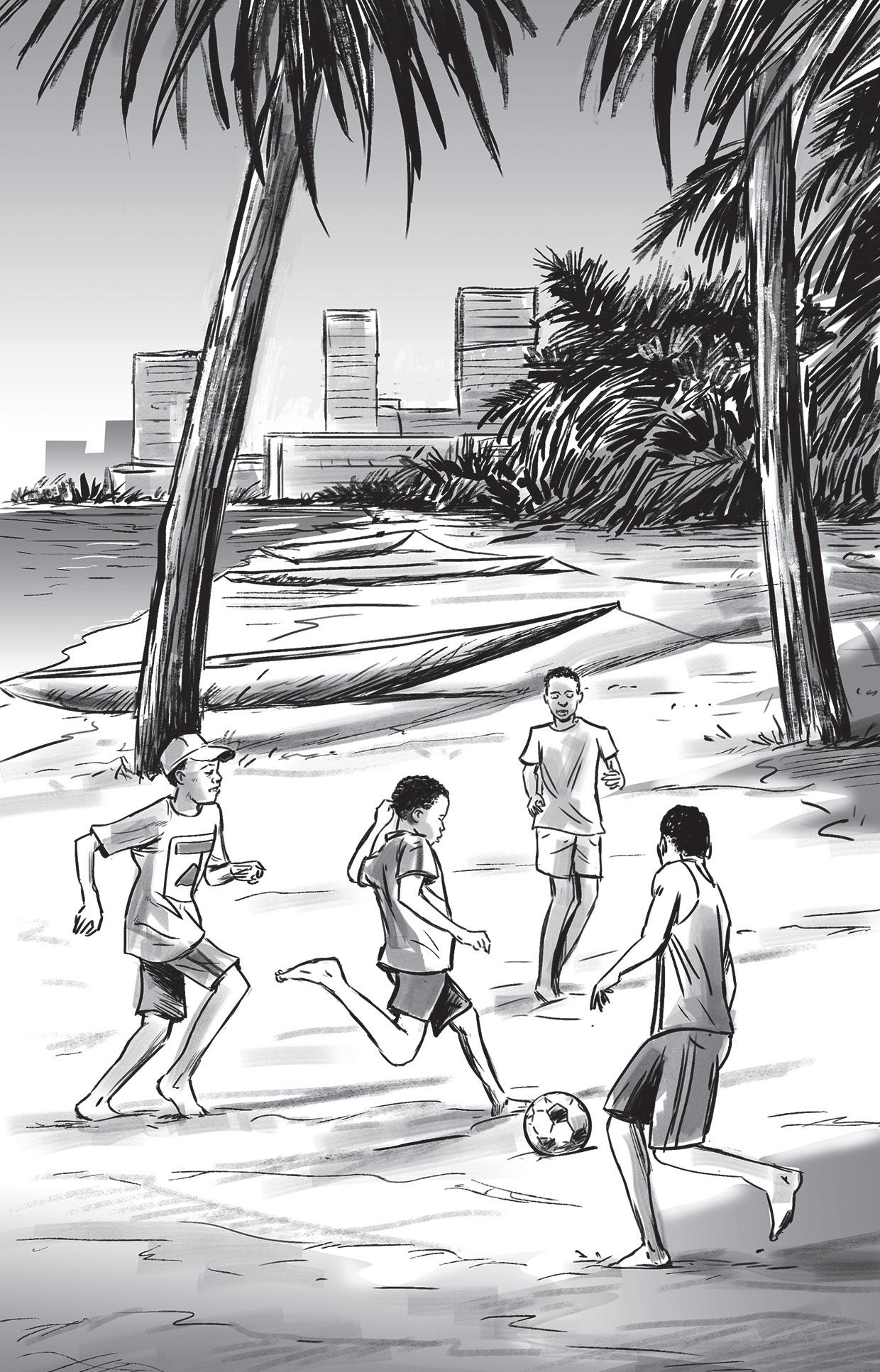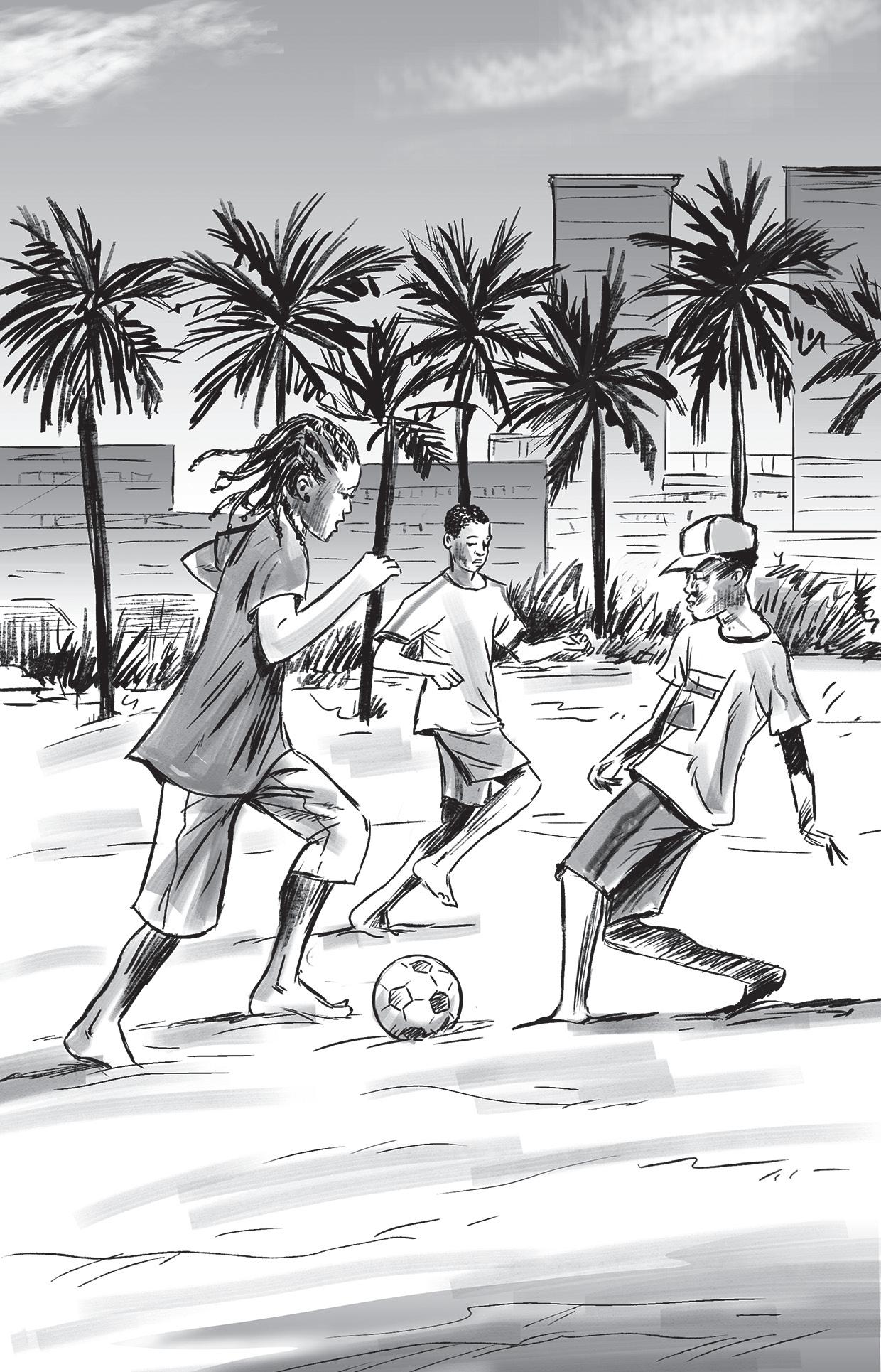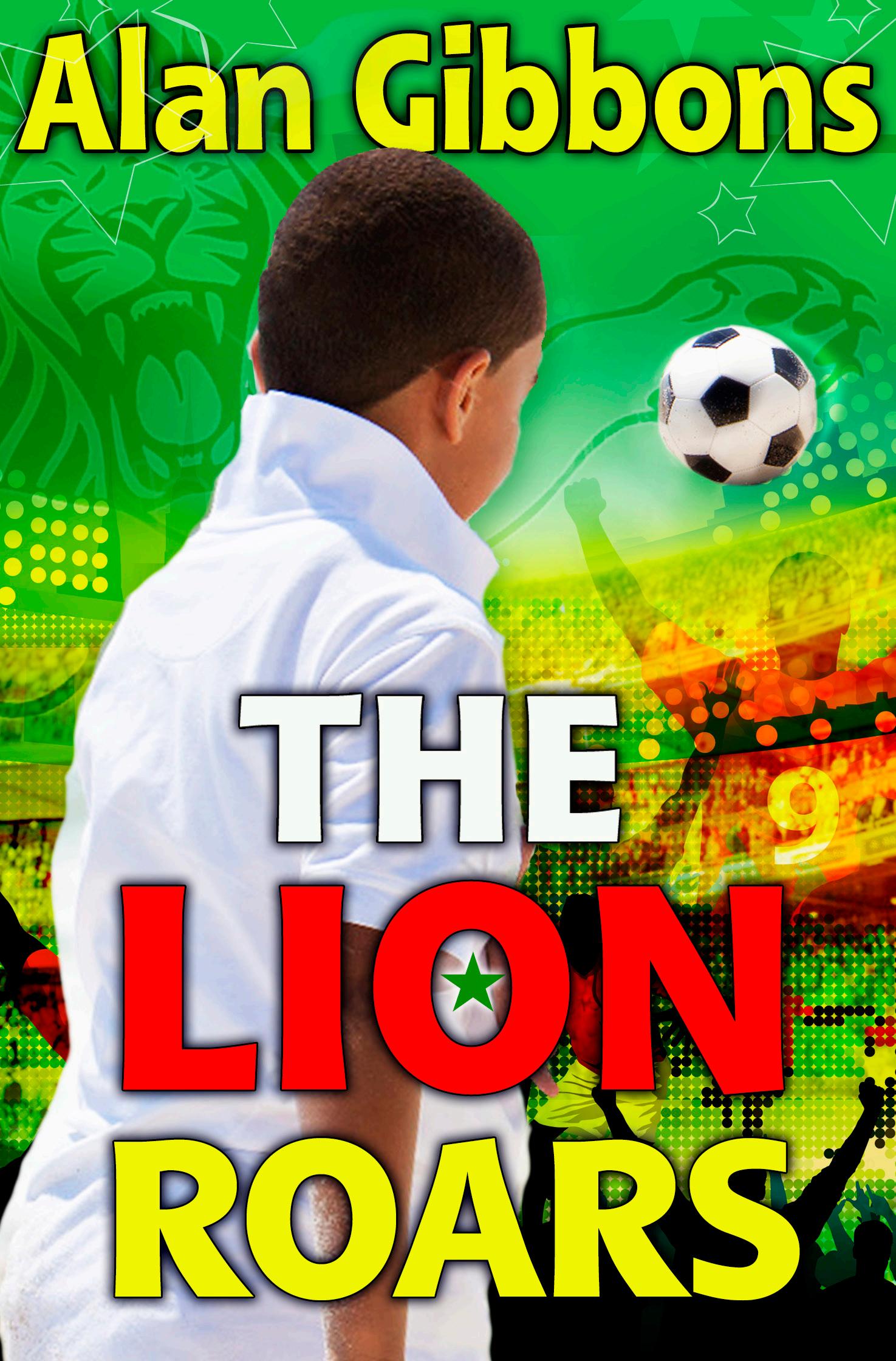Chapter One The Cub
For most of the boys Jimi knew, it was books or football, but Jimi loved books and football.
Of course, most of the books he read were about football. Jimi’s mum and dad were always telling him to read.
“Books give you an education,” they said. “You can make something of yourself, be a lawyer, a doctor, a teacher. Or you could have your own shop or factory.”
1
‘Just think,’ Jimi dreamed, ‘one day I might drive up to my house with my mum and dad, my brother and sister, and walk inside like somebody important in my well-cut suit.’
But Jimi knew that football gives you an even bigger dream. Football can make you into a star. A star so big that people will read about you in the newspapers and see you on TV. And so Jimi played football every spare minute he had. He played after school. Sometimes he went down to the beach with his friends and they used the palm trees as goal posts. They all played in their bare feet – they only had one pair of shoes each, and they had to keep those smart. Then they would race through the waves and splash each other. Jimi played everywhere, every place and every time he could. He would have played in his sleep if he could. He played with joy in his heart and magic in his toes.
2

Jimi played with pride, too. He was proud to be African.
In Jimi’s school there were books about all the great footballers born in Africa. He knew their names off by heart – Roger Milla and Patrick Vieira, Samuel Eto’o and Patrice Evra, Demba Ba and Didier Drogba. There was music in their names and in the names of the great African national teams – the Elephants, the Panthers, the Eagles, the Lions.
Jimi wanted to wear the all-white kit of the Lions of Senegal one day. Every day he imagined himself running out onto the pitch in front of thousands of fans, hearing them chant his name. “Jimi, Jimi Diop.” It was a wonderful dream, but Jimi couldn’t think how it might come true. Today Jimi was playing with his friend Demba.
4
“Hey Jimi,” Demba shouted. “You might be our star player, but you need to cut out the daydreams!”
Jimi jogged over to join in. Demba was right – he was their star player. All the boys his own age wanted him in their team. With Jimi on side they would win for sure. But he was always looking over at the older boys, like his brother Nuru. They would never let Jimi play with them.
When the game ended, Jimi went over to stand by his sister Julia, who was watching Nuru play. They always waited for Nuru so the three of them could walk home together.
“Did you win?” Julia asked Jimi.
“I won,” Jimi said. “I scored four goals. I always win. I’m too good for the boys my age.”
Nuru came over to take a throw-in.
5
“Hey, when are you going to let me play on your team?” Jimi asked.
“You?” one of Nuru’s friends said. “You belong with the little kids.”
“Come back when you’ve grown a bit,” another one added.
“Yes, go and play with the other runts.”
“Who are you calling a runt?” Jimi asked.
“I’m no runt. I’m a lion. I can play better than any of you.”
That made them all laugh.
“You are not a lion,” they teased. “You are just a cub – and the smallest cub at that. Go back to the babies. Runt.”
Their laughter and jeers made Jimi’s neck hot with anger. He was better than all the little kids put together and he had more skill than
6
any of the older boys, even Nuru. He would show them if only they would give him a chance.
Julia bent forward and whispered in his ear. “You come with me,” she said.
“But I want to play with them,” Jimi protested.
“You will,” Julia said. “Soon. You need to practise first.”
Jimi pulled a face.
“Don’t do that,” Julia said. “It will stick and you’ll look like a grumpy little boy all your life.”
Demba was still around, so they played attack and defence with Demba in goal and Julia in defence. Jimi was in attack.
Julia was a great defender. She was older than the boys and tall and strong, and she kept pushing Jimi off the ball. The second time she
7
knocked him over, he sat in the dust, crossed his arms and sulked with that grumpy look on his face again.
“That’s not fair,” he moaned. “You’re not playing football. You just keep shoving me.”
“If it’s so easy for me to push you off the ball,” Julia said, “just think what Nuru and his friends will do. You have to be strong.”
Jimi jumped up. “I am strong,” he said. “I’m as strong as a lion!”
“You have to be strong here and here,” Julia told him, and she slapped his arms and legs. “You need some proper muscles, my mighty lion cub.” Then she tapped his head. “You have to be strong here too.”
Jimi frowned.
“Do you mean I have to head the ball? Easy. I can do that.” He looked at Demba. “Tell her.”
8
“He’s right,” Demba said. “He scores lots of goals with his head.”
Julia laughed. “I don’t just mean heading the ball,” she said. “I mean thinking. In football, the first step is in your head. If you can think faster than your opponent, you can beat him, even when he is bigger than you.”
Julia played football herself. She was captain of her team and knew what she was talking about. Jimi would be a fool not to listen to her.
“Do you want me to show you?” she asked.
Jimi looked at Demba. Demba shrugged.
“You never know,” he said. “Your sister is good.”
“OK,” Julia said. “Rule number 1. Don’t lose your temper. Rule number 2. Don’t sulk. Rule number 3. Think. Think faster than the
9

defender. When you see him coming, you need a plan.”
Three times more, Julia knocked Jimi off the ball. The next time she came to tackle him, he ran for the ball and made up a plan in his head. He skipped over her leg, pushed the ball out to her left and scored. It was Julia’s turn to sit in the dust. “That’s my little brother,” Julia said, getting to her feet and ruffling his hair.
Jimi smiled.
“Wait till I get a game with the older boys,” he said. “I’ll show them.”
“But remember,” Julia said. “Have the brains of a teacher and the roar of a lion.”
11






